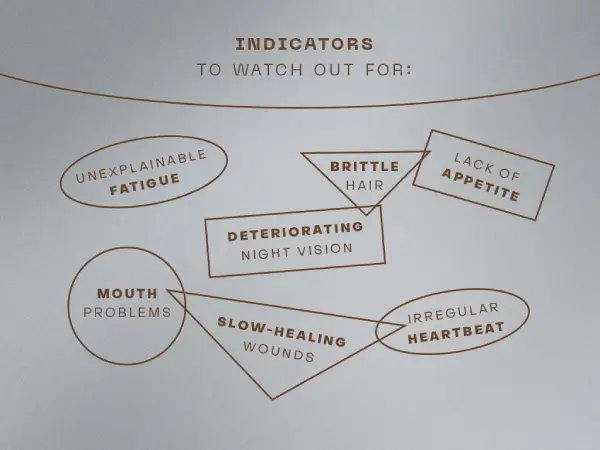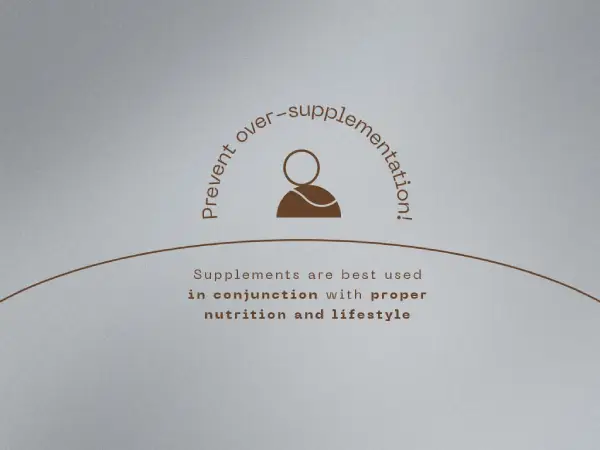Blog
Vitamin Deficiency: Do You Need Supplements?

According to a study by the American Osteopathic Association, at least 86 percent of American adults take vitamin supplements.
Interestingly, only 24 percent of these have received test results that state they have nutritional deficiencies.
The other group is spending money on multivitamins that are unlikely to add any value to their present health and may even harm it.
So, why are people consuming supplements without knowing if they really need them or how these products affect their bodies?
Let’s look at the causes of vitamin deficiency, signs, and how to correct them.
Causes of Vitamin Deficiency
Deficiencies can occur for several reasons with the most common being:
- Poor nutrient absorption, which may be caused by gut problems like coeliac or Crohn’s disease.
- Poorly planned diets
- Medication such as proton pump inhibitors (PPIs)
- Pregnancy
- Consuming excessive amounts of alcohol
Signs of Vitamin Deficiency
Unfortunately, most nutrient deficiencies persist for a long time, showing no physical symptoms. And when they do, we mistake them for other medical conditions.
Here are some indicators to watch out for:
- Unexplainable fatigue. Feeling tired even after rest may be a sign of iron deficiency, which may lead to anemia.
- Brittle Hair. Hair is a key diagnostic marker for nutrient deficiency. Hair that is sparse, brittle, or dry may signify a lack of protein, iron, and fatty acids, among other nutrients.
- Mouth problems. Angular cheilitis (cracking at mouth corners) or a pale tongue may indicate riboflavin or iron deficiency.
- Chronic lack of appetite may be caused by medication, but could also mean that your body is nutrient-deficient.
- Slow-healing wounds or bruising easily may signal the lack of vitamin C.
- Having bone pain may signify vitamin D deficiency.
- Irregular heartbeat, twitching around the face and mouth or muscle cramps may be your body’s way of expressing low calcium levels.
- Deteriorating night vision and overall loss of sharpness in your sight may result from Vitamin A deficiency.
How Will My Doctor Know that I’m Vitamin Deficient?
If you experience one or several of the symptoms we’ve mentioned above, see a doctor.
If they suspect vitamin or mineral deficiency, they will order a blood test to analyze your current levels.
Treating Vitamin and Mineral Deficiency
Most over-the-counter dietary supplements are bought by people who think they need to supplement their diets, based on online research.
Others consume supplements recommended by family friends, exercise professionals, celebrities, and social media influencers.
In an actual sense, a well-balanced diet can provide all the nutrition you need and correct most deficiencies.
Rather than pour money into the multi-billion dollar supplements industry, people should use that money to add highly nutritious foods to their diets.
What if your test results reveal nutrient deficiency?
Your Naturopathic Doctor (ND) will discuss with you the specific nutrients your body needs.
They will also create a dietary and supplementary plan to help you increase these nutrients in your body.
You don’t need to pop a ton of pills to cover your body’s needs, rather specific supplements to make up for the shortage.
People who may need nutritional supplements include:
- Pregnant women or those planning on getting pregnant may require folic acid supplements and prenatal vitamins, respectively.
- Vegans and people on a restricted diet. Some nutrients may prove harder to get when a person omits out certain food groups.
- Elderly people. Our bodies absorb fewer vitamins as we age. Those over 50 years of age may require supplements to keep them strong and healthy.
- Some infants and children may need an iron and vitamin D boost.
- Smokers and those who use illegal drugs or abuse alcohol.
- Women who experience heavy menses.
- Adults with osteoporosis
- People with malabsorption problems like pancreatitis, cystic fibrosis, diarrhea, coeliac disease, or Crohn’s disease.
Supplements Aren’t Miracles
Contrary to what most people think, megadoses of vitamin supplements aren’t medicines. They won’t cure certain ailments or persistent tiredness, or reduce stress.
Supplements are just short-term measures to boost your nutritional needs as you change your diet and lifestyle.
Here are foods you can incorporate into your diet to improve vitamin and mineral levels
- Vitamin A: sweet potatoes, carrots, kales, fish, beef liver, butter, cheese, eggs, and milk.
- Vitamin B: bananas, black-eyed peas, navy and kidney beans, sardines, shellfish, plain yogurt, sunflower seeds, chili peppers.
- Vitamin C: oranges, strawberries, pineapple, papaya, kiwi, mangoes, broccoli, kales, bell peppers.
- Vitamin D: salmon, eggs, portobello mushrooms, and cod liver oil.
- Vitamin E: nuts, seeds, asparagus, red bell pepper, and peanut butter
- Vitamin K: kales, broccoli, Brussels sprouts, green leaf lettuce, Swiss chard, fish, and meat.
- Iron: lentils, dried food like raisins and apricots, fresh or canned oysters, liver, and meat
- Calcium: yogurt, milk, dairy products, fish, dried peas, collard greens, and other green leafy vegetables.
- Manganese: chickpeas, clams, mussels, nuts, soybeans, rice, spices like black pepper, coffee, and tea.
- Magnesium: whole grains, green leafy vegetables, broccoli, legumes, seeds, and, yes, chocolate.
- Iodine: seaweed and seafood, dairy products, and iodized salt.
- Zinc: cashew nuts, pumpkin seeds, spinach, and cocoa
As you can see, there is a food group that can replace the supplements most people take.
Boosting Your Nutrient Needs with LIVV Natural
At LIVV Natural, we have a team of medical professionals, including Naturopathic doctors who can help you create a plan to boost nutrient levels in your body.
We combine specific natural supplements and nutrient-dense foods to help your body function as it should.


